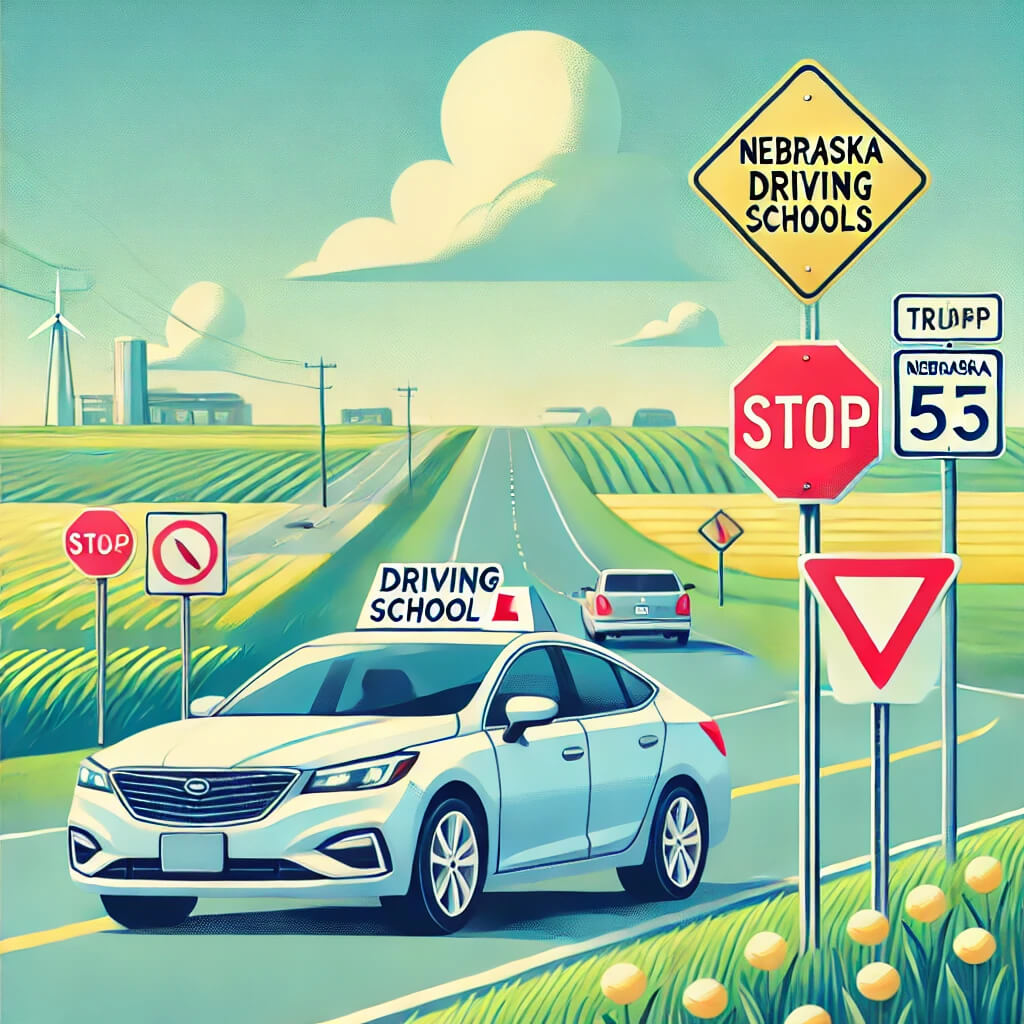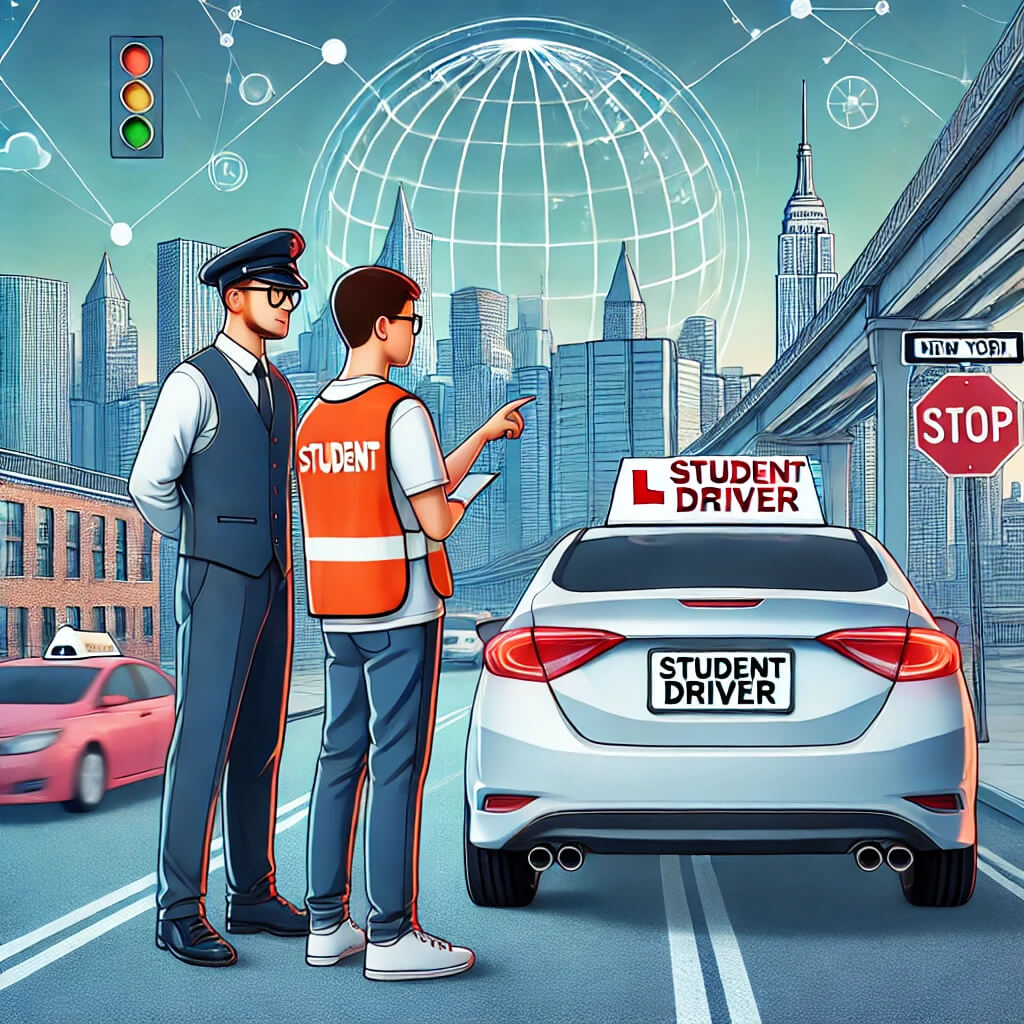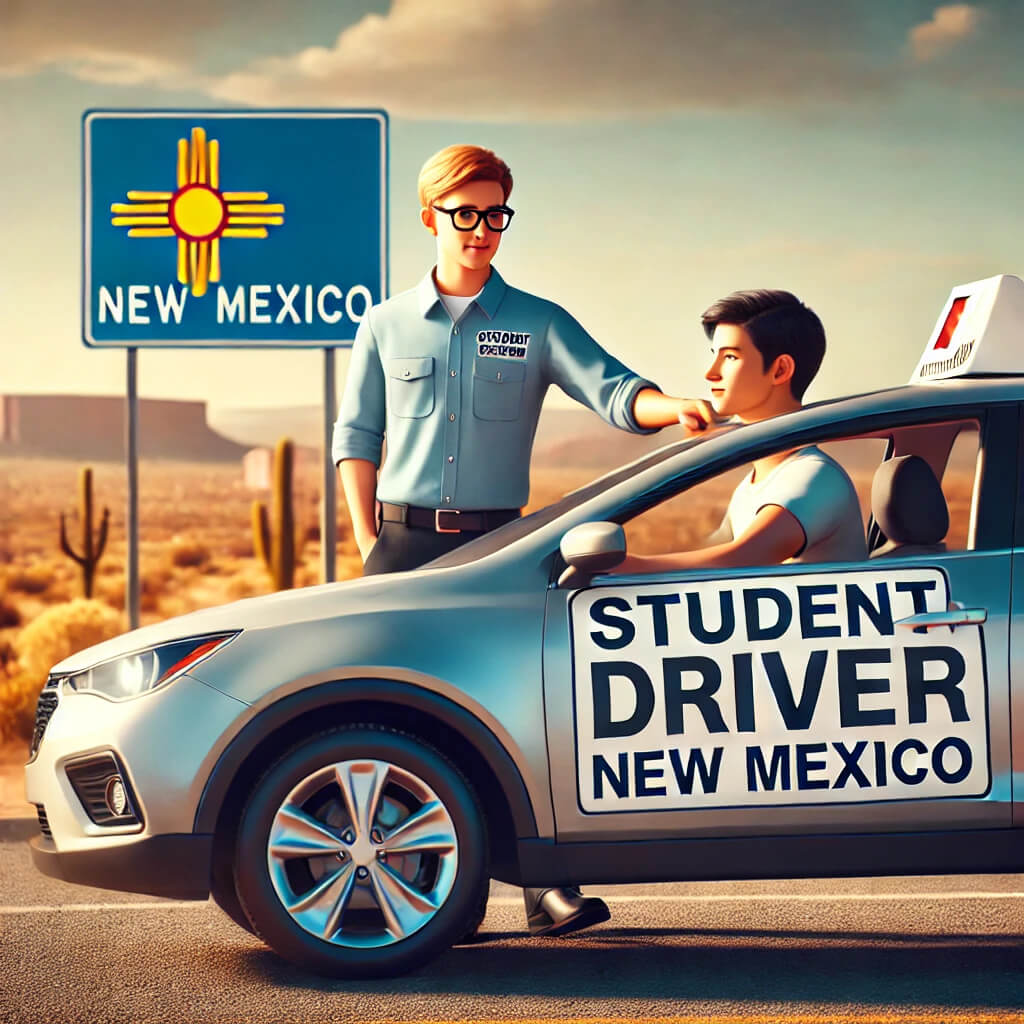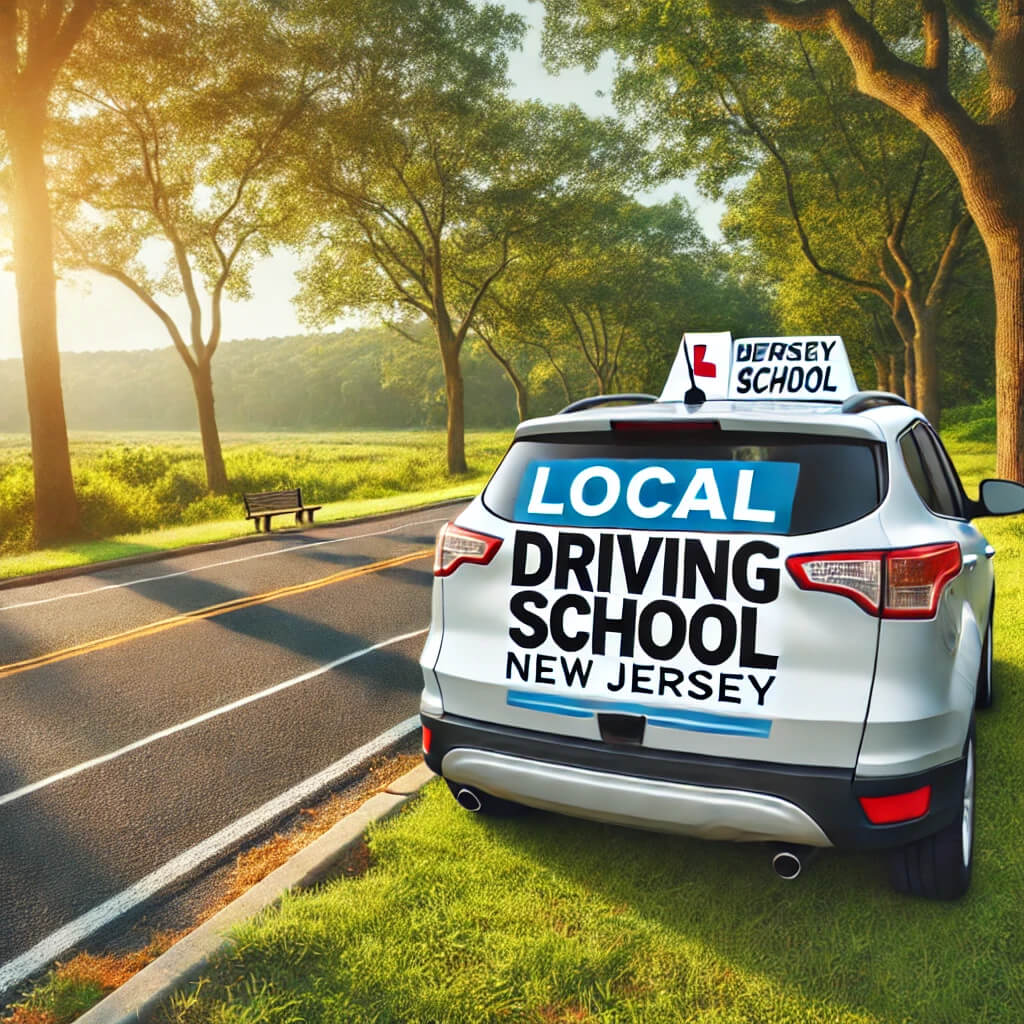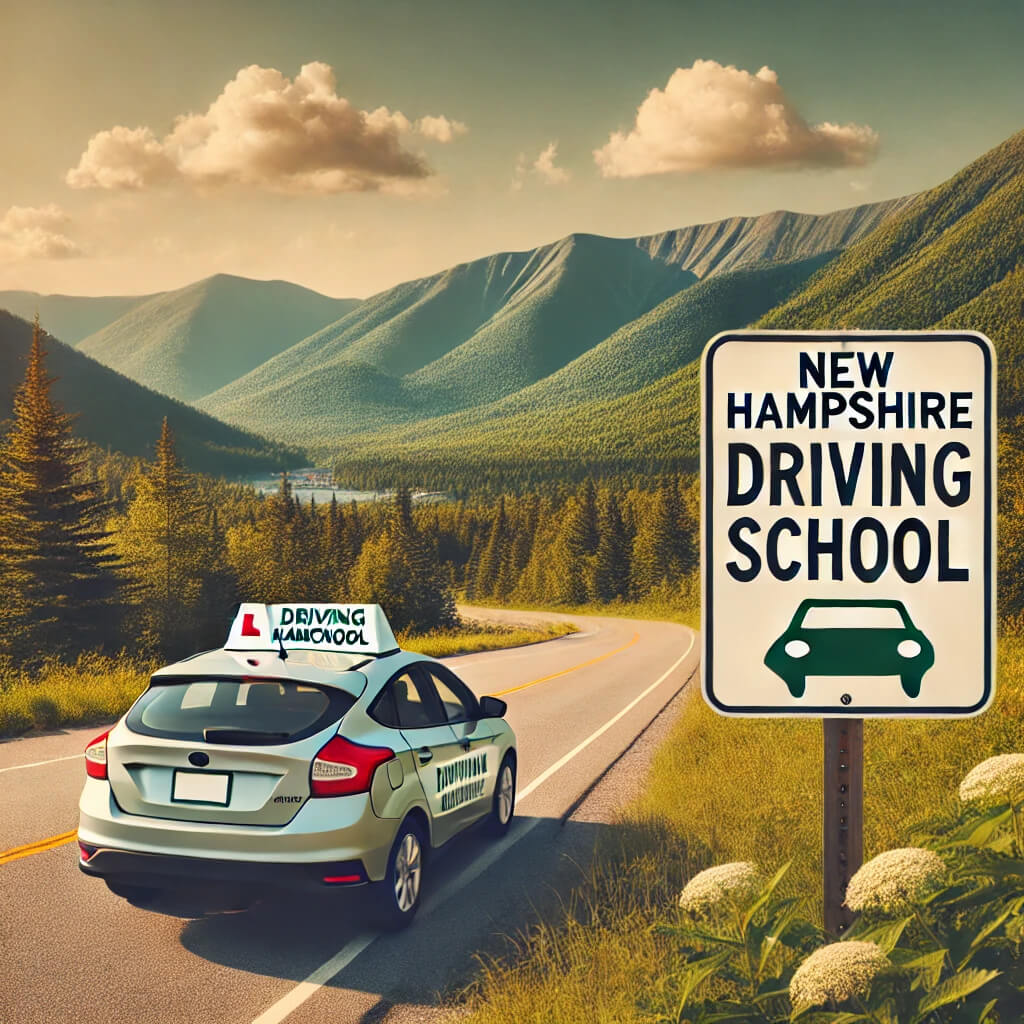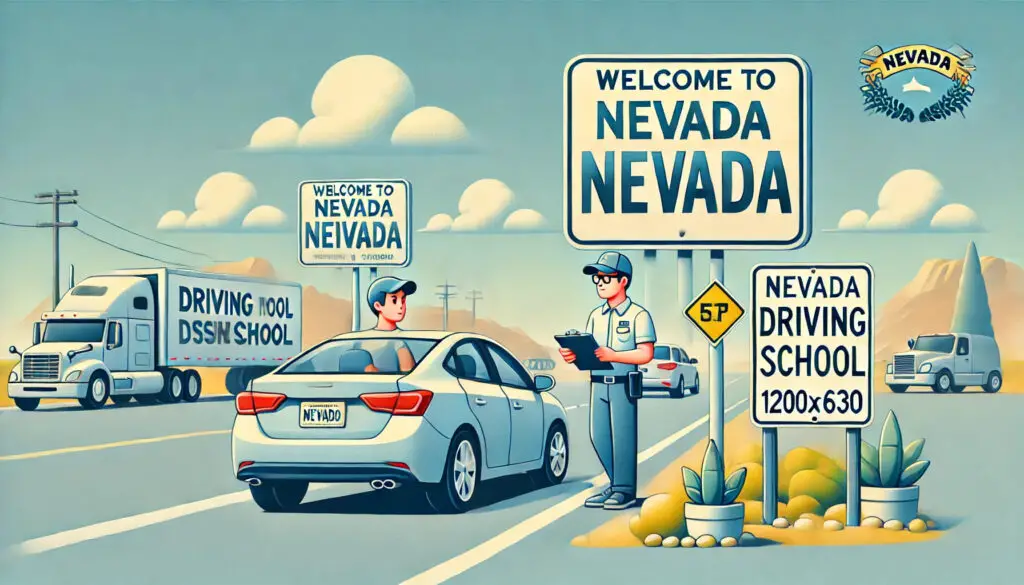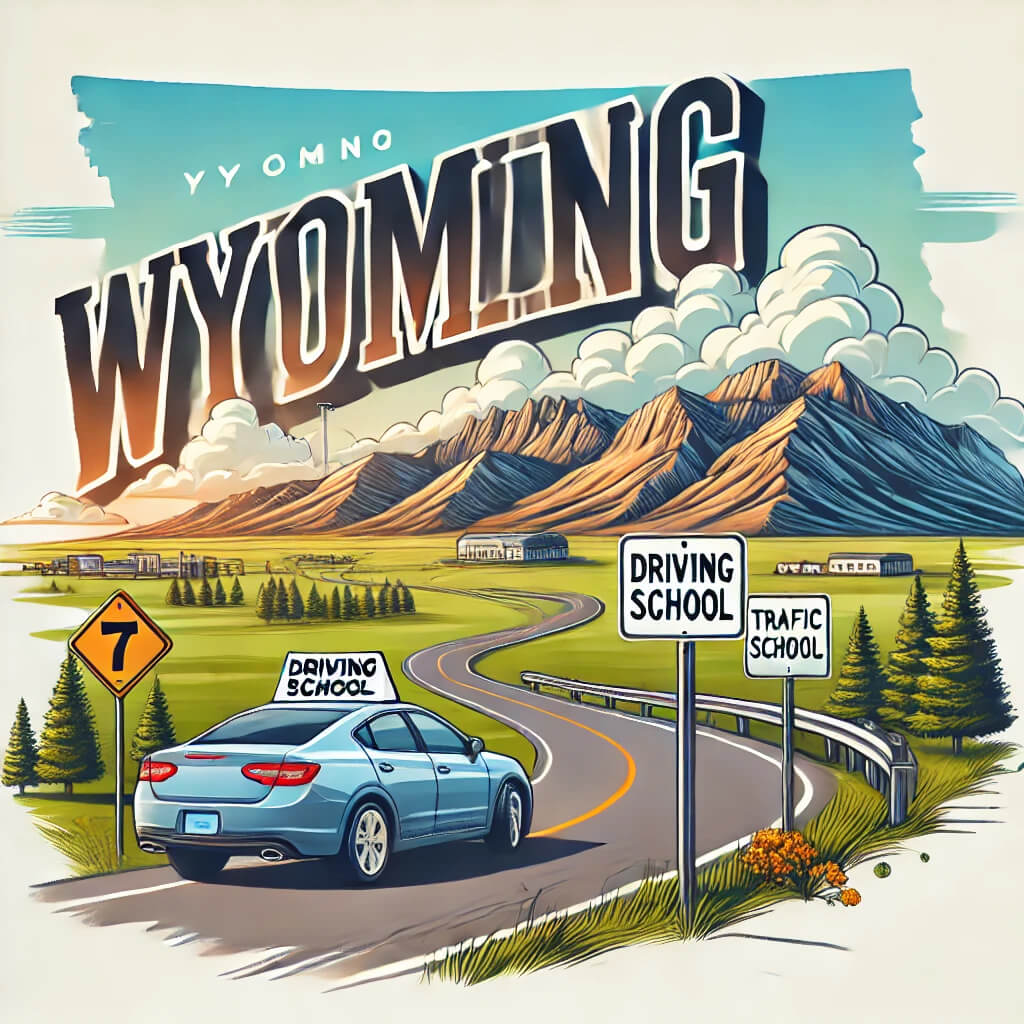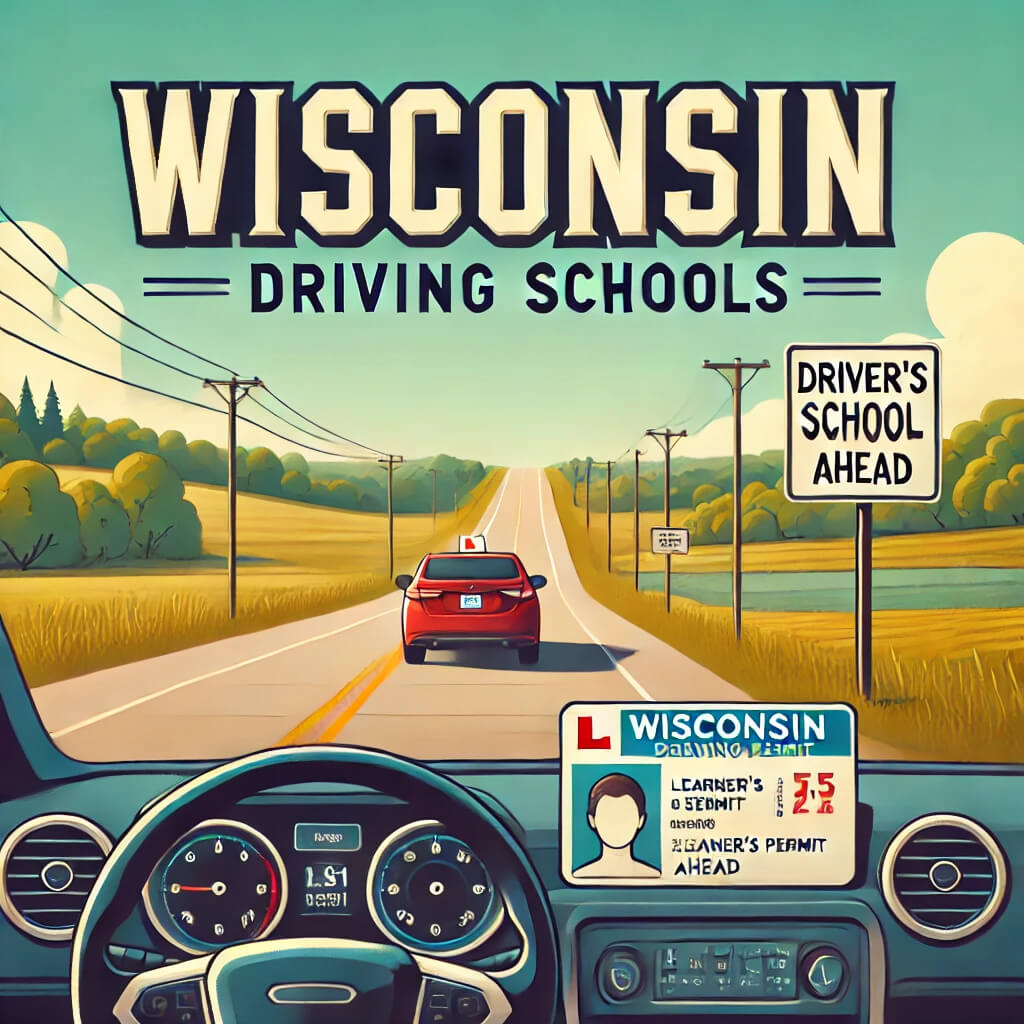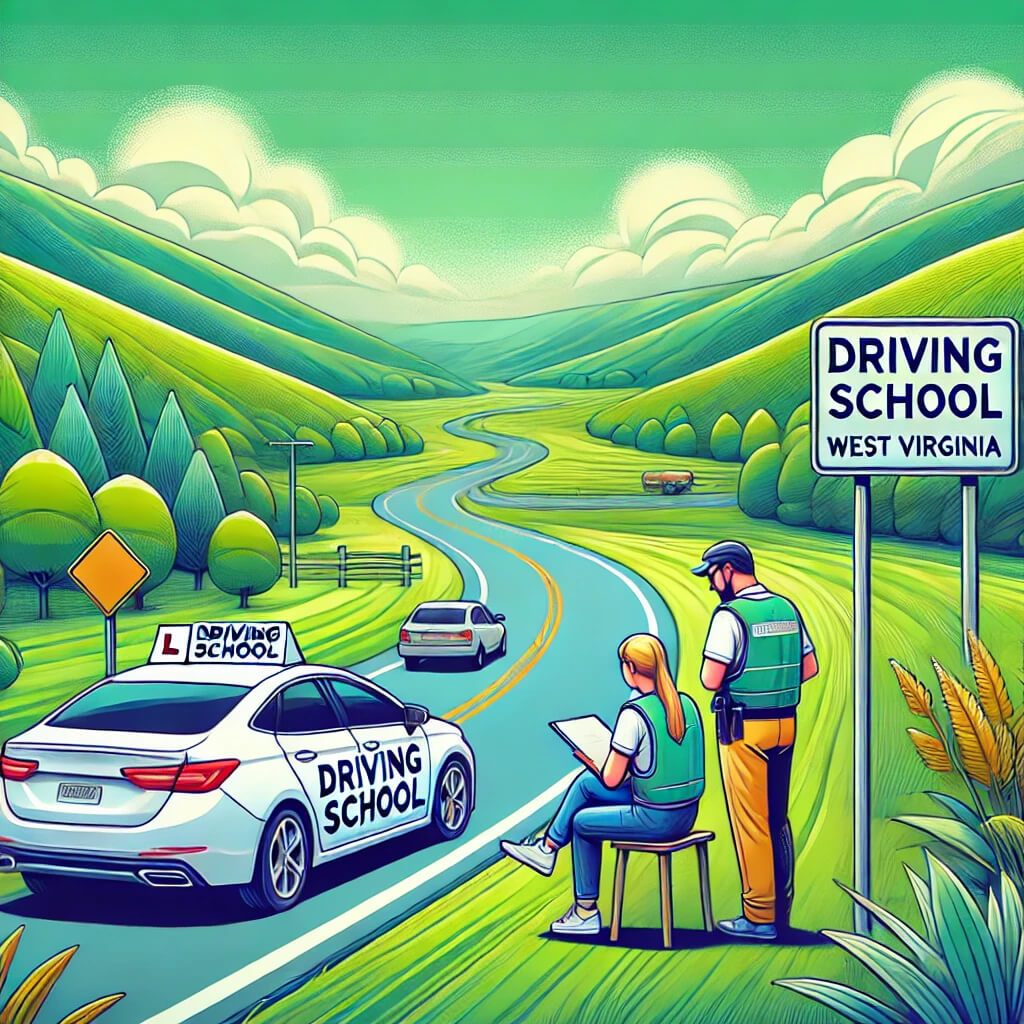1. Introduction to Nebraska Driving Schools
1.1 What Makes Driving Schools Essential?
Driving schools provide the foundation for safe driving practices, offering structured instruction and hands-on training. These schools bridge the gap between theoretical knowledge and real-world application, ensuring new drivers are well-prepared for the road.
1.2 Overview of Nebraska’s Driving Laws and Requirements
Nebraska mandates specific steps to obtain a driver’s license, including passing written and behind-the-wheel tests. Driving schools help students navigate these requirements while emphasizing road safety and compliance with Nebraska traffic laws.
1.3 The Role of Driving Schools in Road Safety
Driving schools play a critical role in reducing accidents by teaching defensive driving, hazard awareness, and adherence to traffic rules. Their programs equip students to handle diverse driving conditions confidently.
2. Why Enroll in a Driving School in Nebraska?
2.1 Benefits of Professional Driving Instruction
Professional instructors offer tailored guidance, helping students master driving techniques, understand road signs, and develop safe driving habits. This personalized approach enhances the learning experience.
2.2 How Driving Schools Prepare You for the Nebraska DMV Test
Driving schools provide comprehensive resources, including practice tests and mock driving sessions, ensuring students are thoroughly prepared for both written and practical DMV exams.
2.3 The Long-Term Value of Driver Education
Investing in driver education reduces long-term risks and costs associated with accidents and traffic violations, fostering lifelong safe driving habits.
3. Types of Driving Schools in Nebraska
3.1 Teen Driving Schools: Getting Started Early
Teen driving schools focus on foundational skills for young drivers, combining classroom instruction with practical training to prepare them for their first license.
3.2 Adult Driving Schools: Overcoming Driving Anxiety
These schools cater to adults who need to build confidence behind the wheel, offering customized lessons to address individual challenges.
3.3 Defensive Driving Schools: Staying Safe on the Road
Defensive driving programs teach advanced techniques for avoiding accidents, managing road rage, and navigating adverse weather conditions.
3.4 Commercial Driver’s License (CDL) Schools for Truck Drivers
CDL schools train drivers for professional trucking careers, focusing on handling large vehicles, cargo safety, and compliance with federal regulations.
4. Nebraska Driving Requirements: What You Need to Know
4.1 Age Requirements for Learner’s Permits and Licenses
Nebraska requires applicants to be at least 15 years old for a learner’s permit and 16 years old for a full driver’s license. Graduated licensing laws apply for teens under 18.
4.2 Steps to Obtain a Nebraska Driver’s License
- Pass the written knowledge test.
- Complete a certified driver education program.
- Fulfill required driving hours.
- Pass the behind-the-wheel driving test.
4.3 Mandatory Training and Driving Hours
Nebraska mandates a minimum of 50 hours of supervised driving, including 10 hours at night, to ensure adequate practice.
5. Choosing the Right Driving School in Nebraska
5.1 Key Factors to Consider When Selecting a Driving School
When choosing a driving school, consider its accreditation, instructor qualifications, curriculum, and student success rates.
5.2 Accreditation and Licensing: What to Check For
Ensure the school is licensed by the Nebraska Department of Motor Vehicles and employs certified instructors.
5.3 Reviews, Testimonials, and Word of Mouth
Research online reviews and seek recommendations from friends and family to gauge the school’s reputation and effectiveness.
6. Top-Rated Driving Schools in Nebraska
6.1 Lincoln’s Leading Driving Schools
Notable schools in Lincoln include ABC Driving School and Nebraska Safety Council, known for their comprehensive programs.
6.2 Omaha’s Most Trusted Driving Schools
Omaha Driving School and A+ Driving School are highly regarded for their experienced instructors and flexible scheduling.
6.3 Noteworthy Regional Driving Schools Across Nebraska
Regional options like Grand Island Driving Academy offer personalized instruction tailored to community needs.
7. Online Driving Schools in Nebraska
7.1 The Rise of Virtual Driver Education
Online driving schools provide flexible learning options, allowing students to complete coursework at their own pace.
7.2 Benefits and Limitations of Online Driving Courses
While online courses are convenient, they lack hands-on training, making them best suited as a supplement to in-person instruction.
7.3 Popular Online Driving Schools in Nebraska
Options include iDriveSafely and DriversEd.com, which offer DMV-approved courses with interactive content.
8. Cost of Driving Schools in Nebraska
8.1 Average Cost Breakdown for Driving Classes
Driving classes in Nebraska typically range from $300 to $800, depending on the program’s length and scope.
8.2 Payment Plans and Financial Assistance Options
Many schools offer payment plans or discounts for bulk bookings, making quality education more accessible.
8.3 How to Budget for Driving Education
Allocate funds for tuition, study materials, and DMV fees to ensure a smooth learning experience.
9. What to Expect During Driving School
9.1 Classroom Instruction: Learning the Rules of the Road
Classroom sessions cover traffic laws, road signs, and safe driving strategies, laying the groundwork for practical training.
9.2 Behind-the-Wheel Training: Mastering Driving Skills
Hands-on sessions focus on vehicle control, lane changes, parking, and hazard perception.
9.3 Practice Tests: Preparing for the Nebraska DMV Exam
Mock exams simulate the real test environment, helping students identify areas for improvement.
10. The Nebraska DMV Written Test: Tips and Tricks
10.1 Study Tips for Passing the Written Test
Review the Nebraska Driver’s Manual, take practice tests, and focus on areas where you struggle.
10.2 Common Mistakes to Avoid
Avoid overconfidence, skipping questions, or neglecting to study lesser-known traffic rules.
10.3 Practice Resources to Use
Utilize DMV practice tests, flashcards, and mobile apps for efficient preparation.
11. Behind-the-Wheel Test Preparation
11.1 Understanding the Driving Test Format
The test evaluates basic driving skills, including parking, signaling, and obeying traffic signs.
11.2 Key Skills Evaluated During the Test
Examiners assess control, situational awareness, and adherence to road rules.
11.3 Pro Tips for Passing on the First Try
Practice consistently, remain calm, and follow examiner instructions carefully.
12. Common Challenges Faced by New Drivers
12.1 Nervousness and Anxiety Behind the Wheel
Building confidence through practice and relaxation techniques can help.
12.2 Mastering Parking and Parallel Parking
Focus on step-by-step guidance and practice in low-pressure environments.
12.3 Driving in Bad Weather Conditions
Learn techniques for handling rain, snow, and fog, such as reduced speeds and increased following distances.
13. Road Safety Tips for New Drivers
13.1 Defensive Driving Strategies for Nebraska Roads
Anticipate other drivers’ actions, maintain safe distances, and avoid distractions.
13.2 Understanding Nebraska’s Distracted Driving Laws
Texting while driving is prohibited. Focus entirely on the road to avoid penalties.
13.3 Navigating Rural vs. Urban Roads
Adjust driving styles based on road conditions, traffic density, and visibility.
14. Nebraska Driving School Curriculum Highlights
14.1 Focus on Traffic Laws and Road Signs
Comprehensive coverage of Nebraska’s traffic laws ensures compliance and safety.
14.2 Practical Sessions for Hazard Perception
Students learn to identify and respond to potential hazards in real time.
14.3 Real-Life Scenarios Simulated During Training
Training includes simulations of emergency stops, skid recovery, and other critical skills.
15. Special Programs Offered by Nebraska Driving Schools
15.1 Driver Improvement and Refresher Courses
These courses help experienced drivers update their skills and adapt to new regulations.
15.2 Advanced Driving Techniques for Experienced Drivers
Programs focus on precision driving, high-speed maneuvers, and accident prevention.
15.3 DUI Education Programs
Designed for offenders, these programs emphasize the dangers of impaired driving and legal consequences.
16. Nebraska Driving Schools for Non-Native English Speakers
16.1 ESL-Friendly Driving Instructors
Schools with multilingual instructors ensure effective communication for non-native speakers.
16.2 Resources Available for Multilingual Students
Study materials in multiple languages aid comprehension and retention.
17. Nebraska Driving School Regulations and Policies
17.1 Overview of Licensing Requirements for Driving Instructors
Instructors must meet state certification standards, including training and background checks.
17.2 State Guidelines for Operating Driving Schools
Schools must adhere to Nebraska DMV regulations, including curriculum standards and safety protocols.
17.3 Renewal and Compliance for Driving Schools
Regular inspections and license renewals ensure quality and compliance.
18. Frequently Asked Questions
18.1 How long does driving school take in Nebraska?
Most programs last 4-6 weeks, depending on the schedule and curriculum.
18.2 Can I complete all requirements online?
While classroom instruction can be online, behind-the-wheel training must be in-person.
18.3 What happens if I fail the driving test?
You can retake the test after a waiting period, depending on DMV regulations.
18.4 Do Nebraska driving schools offer private lessons?
Yes, many schools provide one-on-one sessions tailored to individual needs.
18.5 Are there driving schools specifically for seniors?
Several schools offer courses designed for older drivers, focusing on refresher training and confidence-building.
19. The Future of Driving Schools in Nebraska
19.1 Impact of Autonomous Vehicles on Driver Education
As self-driving cars evolve, schools may shift focus to supervising autonomous systems and advanced safety protocols.
19.2 Integrating New Technologies into Driving School Programs
Virtual reality simulators and AI-driven training tools are becoming more common, enhancing the learning experience.
19.3 Evolving Regulations and Their Effect on Driving Schools
Legislation will likely adapt to technological advancements, influencing curriculum requirements.
20. Conclusion
20.1 Why Choosing the Right Driving School Matters
Selecting the right driving school ensures thorough preparation, safety, and long-term confidence on the road.
20.2 Key Takeaways for Future Drivers
Comprehensive education, practice, and adherence to Nebraska laws are essential for safe driving.
20.3 Final Thoughts on Navigating Nebraska’s Roads
With proper training and guidance, drivers can confidently navigate Nebraska’s roads, contributing to safer communities.

